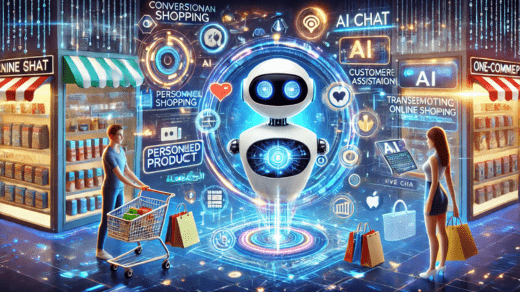E-commerce has undergone a dramatic transformation over the past two decades, evolving from static websites that offered limited interaction to dynamic platforms that engage customers in real-time. Initially, online shopping consisted of simple catalog displays where users could browse products, but the rise of technology has introduced more sophisticated interfaces that focus on user experience. As consumers have become accustomed to personalized services, businesses have realized that static websites no longer meet the expectations of today’s savvy shoppers.
The shift towards conversational interfaces is a significant milestone in this evolution. By incorporating elements like chatbots and virtual assistants, retailers can create interactive experiences that not only facilitate transactions but also foster relationships with customers. These advancements have led to the creation of conversational chatbot platforms for e-commerce, which allow businesses to engage in meaningful dialogues with their customers. This trend has reshaped how brands communicate, making it essential for online retailers to adapt or risk being left behind https://gptconnect.ai/conversational-ai-in-ecommerce-transforming-online-shopping/.
As technology continues to advance, the integration of artificial intelligence (AI) and machine learning into conversational interfaces will further enhance the shopping experience. By analyzing data from customer interactions, these platforms can provide insights that help businesses better understand their target audience. The evolution of e-commerce is far from over, and the future promises even more immersive and personalized shopping experiences.
Key Benefits of Implementing a Chatbot Platform in Your Online Store
Implementing a conversational chatbot platform for e-commerce offers numerous benefits that can significantly enhance business operations. These platforms are designed to improve customer engagement by providing instant responses to inquiries, thereby creating a more satisfying shopping experience. With chatbots available 24/7, customers can receive assistance at any time, leading to increased customer satisfaction and loyalty.
Another significant advantage of chatbot platforms is their ability to handle a high volume of inquiries simultaneously. Unlike human agents, who can only manage a limited number of interactions at once, chatbots can engage with multiple customers without compromising the quality of service. This capability is particularly beneficial during peak shopping periods, such as holidays or promotional events, when retailers typically experience a surge in inquiries. By ensuring that customers receive prompt responses, businesses can reduce cart abandonment rates and improve conversion rates.
Additionally, integrating a conversational chatbot platform into an online store can lead to cost savings. By automating routine tasks such as answering frequently asked questions or providing order status updates, businesses can free up human resources to focus on more complex issues that require a personal touch. This allows for a more efficient allocation of staff, ultimately leading to improved operational efficiency and reduced overhead costs.
How Conversational AI is Revolutionizing Customer Service in Retail
Conversational AI is at the forefront of a customer service revolution in the retail sector. By employing natural language processing (NLP) and machine learning, these platforms can understand and respond to customer queries in a conversational manner. This technology not only enhances the customer experience but also provides retailers with valuable insights into consumer behavior and preferences.
One of the key features of conversational AI is its ability to learn from interactions. As customers engage with chatbots, the platforms gather data that helps refine their responses and improve accuracy over time. This continuous learning process ensures that customers receive relevant and personalized assistance, leading to higher satisfaction rates. Retailers can leverage this information to tailor marketing strategies and product offerings, creating a more targeted approach that resonates with their audience.
Moreover, conversational AI can facilitate a seamless omnichannel experience. Customers can initiate conversations on one platform, such as a website, and continue them on another, like social media or messaging apps. This flexibility ensures that customers can interact with brands in their preferred manner, ultimately fostering brand loyalty and trust. As more retailers adopt conversational AI solutions, the customer service landscape will continue to evolve, setting new standards for engagement in the retail industry https://gptconnect.ai/embracing-the-power-of-chatbots-in-ecommerce/.
Personalization at Scale: Leveraging Chatbots for Tailored Shopping Experiences
Personalization has become a cornerstone of effective retail strategies, and conversational chatbot platforms enable retailers to deliver customized shopping experiences at scale. By analyzing customer data, including browsing history, purchase patterns, and preferences, chatbots can offer tailored product recommendations that align with individual consumer needs. This level of personalization not only enhances the shopping experience but also increases the likelihood of conversion.
Chatbots can engage users with personalized messages that resonate with their specific interests. For instance, if a customer frequently browses athletic wear, the chatbot can send alerts about new arrivals or discounts related to that category. This proactive approach keeps consumers informed and engaged, encouraging them to return to the site for future purchases. Furthermore, by providing personalized assistance, chatbots can build rapport with customers, creating a sense of connection that fosters brand loyalty.
Another aspect of personalization is the ability to offer targeted promotions and discounts. By utilizing customer data, chatbots can identify which promotions are most likely to appeal to specific segments of the audience. For example, a chatbot could offer a special discount to a customer who has abandoned their cart, incentivizing them to complete their purchase. This strategic use of personalization not only enhances the customer experience but also drives sales and boosts revenue.
Streamlining the Buying Process: From Product Discovery to Checkout
The buying process in e-commerce can often be complex and overwhelming for consumers. However, conversational chatbot platforms streamline this journey by guiding customers from product discovery to checkout seamlessly. By simplifying navigation and providing instant support, chatbots enhance the overall shopping experience and reduce friction during the purchasing process.
When customers visit an online store, chatbots can assist them in discovering products that match their preferences. For instance, if a customer is unsure about the type of product they want, the chatbot can ask a series of questions to narrow down options and suggest relevant items. This interactive approach not only saves time but also empowers customers to make informed decisions, ultimately leading to higher satisfaction rates.
Additionally, chatbots can facilitate a smooth checkout process by addressing common concerns that may arise during this stage. Whether it’s questions about shipping options, payment methods, or return policies, chatbots can provide real-time answers, alleviating customer anxieties. By removing barriers to checkout, retailers can significantly reduce cart abandonment rates and improve conversion rates.




